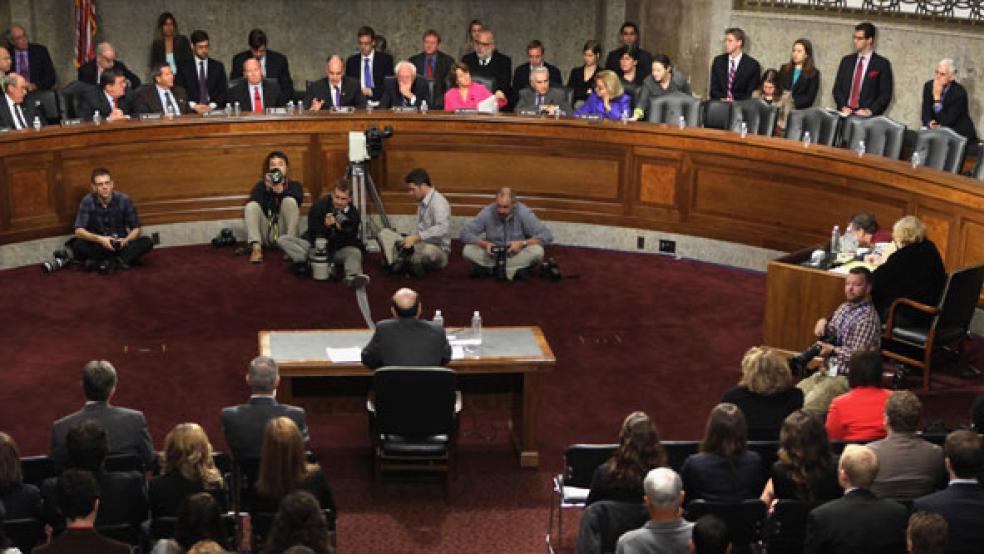In the face of mounting Republican opposition to the Fed taking unemployment into account when setting monetary policy, Chairman Ben Bernanke on Tuesday defended the central bank’s latest moves to lower long-term interest rates as necessary medicine for an economy, that while still sluggish, is likely to grow more rapidly in the second half of the year than it did in the first.
In an appearance before the Joint Economic Committee, Bernanke blamed slow-growing consumer spending, which accounts for 70 percent of economic activity, on persistently high unemployment and the gnawing fear among a growing number of Americans that their jobs may be at risk. After noting that the decline in home values and financial assets also contributed to decreasing confidence, he said “probably the most significant factor depressing consumer confidence, however, has been the poor performance of the job market.”
“Moreover, recent indicators, including new claims for unemployment insurance and surveys of hiring plans, point to the likelihood of more sluggish job growth in the period ahead,” Bernanke said.
That didn’t stop every Republican on the committee from castigating the Fed for taking the plight of the unemployed into account when setting monetary policy. Led by committee co-chairman Kevin Brady, R-Tex., they claimed that lower interest rates will eventually spark inflation and encourage the government to continue its borrowing binge.
“Monetary policy cannot affect jobs or output except in the very short term,” Brady said in announcing plans to introduce legislation removing unemployment from the Fed’s twin mandate, which since passage of the 1976 Humphrey-Hawkins Act has included both price stability and unemployment. “The dual mandate should be replaced with the single mandate of long-term price stability.”
Bernanke dismissed concerns about the current policy causing inflation. He cited price growth’s rapid return to the Fed target of about 2 percent, with oil prices coming off their highs and the automotive supply-chain shocks from the Japanese earthquake and tsunami abating. Bernanke also noted that the Fed’s second round of monetary easing had been sparked by concerns of deflation, not inflation.
As far as government spending was concerned, Bernanke said that was under Congress’ control and shouldn’t be affected by near-term trends in interest rates. “I think the dual mandate has worked on average pretty well over time,” he said. “I think it’s workable. But in the long run, the only thing we can directly control is inflation, and keeping inflation under control is conducive to growth.”
Bernanke offered what may have been harshest assessment to date of congressional actions during the debt-ceiling debate in July and early August. He blamed the downgrade of the U.S. long-term credit rating on political risk that the U.S. might default, not the underlying creditworthiness of the U.S. government. He coupled that concern with the ongoing worries about the sovereign debt crisis in Europe, which could undermine the financial stability of European banks.
“There seems little doubt that they have hurt household and business confidence and that they pose ongoing risks to growth,” he said.
Bernanke repeated his advice that the U.S. needs to adopt a long-term plan for addressing its fiscal problems while avoiding short-term policies – like sharp budget cuts – that would undermine the economy’s chances for rapid recovery. “You can do both,” he said.





